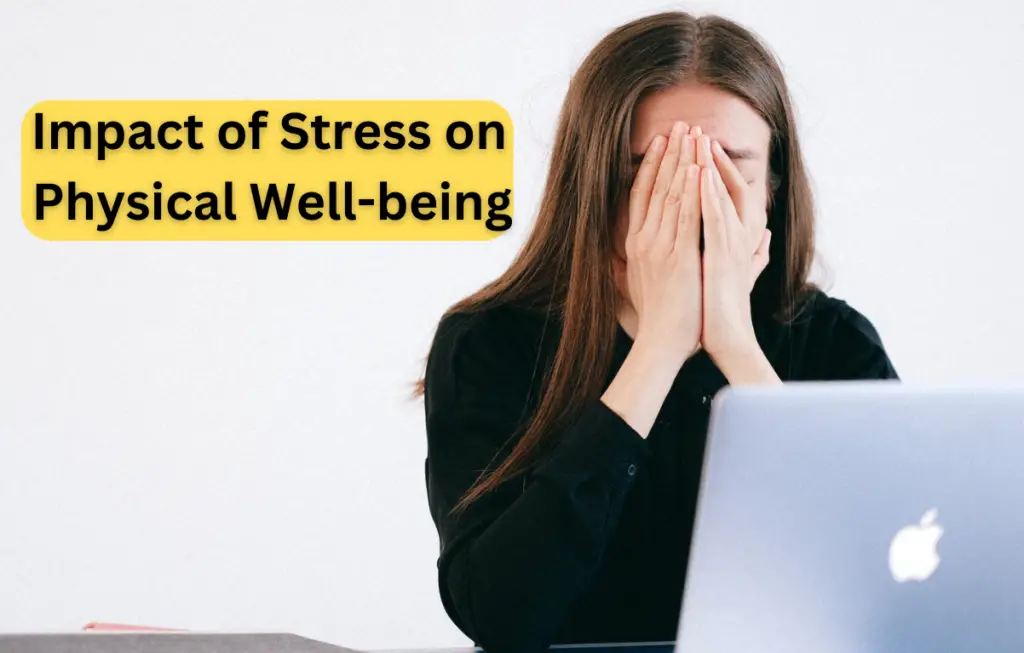Decoding Physical Indicators of Stress
Stress can manifest in various ways, often leaving a noticeable impact on our physical well-being. In this article, we delve into the telltale signs of stress and how they can be identified.
The Silent Agitator: Headaches and Migraines
One of the most prevalent signs of stress is recurrent headaches or migraines. These can range from mild discomfort to debilitating pain and are frequently associated with heightened stress levels. Persistent tension and anxiety can lead to muscle tightness in the neck and scalp, triggering these unwelcome head sensations.
Unmasking the Culprit: Skin Disturbances
Stress has a curious way of revealing itself through our skin. Acne, eczema, and psoriasis flare-ups can often be attributed to underlying stress. The connection between stress and skin health is well-established, as stress prompts the body to release cortisol, a hormone that can lead to increased oil production and inflammation – both prime contributors to skin issues.
The Weight of the Matter: Fluctuations in Body Weight
Fluctuations in body weight, whether rapid gain or loss, can be indicative of stress. The body’s response to stress includes the release of cortisol, which, when elevated, can influence appetite and metabolism. Some individuals might turn to food for comfort, leading to overeating and weight gain, while others might experience a loss of appetite and subsequently shed pounds.
The Subtle Cry for Help: Sleep Irregularities
Stress can take a toll on sleep patterns. Insomnia, characterized by difficulty falling or staying asleep, is a common accompaniment to high stress levels. Conversely, some individuals might find themselves sleeping excessively when overwhelmed. These sleep disruptions can further exacerbate stress, creating a vicious cycle.
The Aching Truth: Muscle Tension and Pain
Muscle tension and pain, particularly in the neck, shoulders, and back, often signify stress. Persistent stress causes muscles to contract and tighten, leading to discomfort and even pain. Poor posture resulting from stress-induced muscle tension can compound these issues, creating a cascade of physical unease.
Navigating Concentration Canyon: Cognitive Function Challenges
Stress has a significant impact on cognitive abilities. Difficulty concentrating, forgetfulness, and impaired decision-making can all stem from elevated stress levels. The flood of cortisol in the body can affect the hippocampus, a brain region crucial for memory and learning, leading to these cognitive hiccups.
The Heart’s Whispers: Palpitations and Chest Discomfort
Heart palpitations and chest discomfort should never be ignored, as they could indicate stress-related cardiac strain. When stressed, the body releases adrenaline, causing the heart to beat faster and potentially leading to palpitations. Additionally, stress can prompt shallow breathing, contributing to chest tightness and discomfort.
Breaking Point: Mood Swings and Emotional Frailty
Stress extends beyond the physical realm, taking a toll on emotions as well. Mood swings, irritability, and emotional fragility are all common signs of stress overload. The hormonal imbalance triggered by stress can lead to drastic emotional fluctuations, making it crucial to address stress for both mental and physical well-being.
A Roadmap to Relief: Managing and Mitigating Stress
Recognizing these physical indicators of stress is the first step towards effectively managing it. Incorporating stress-reduction techniques such as mindfulness, exercise, adequate sleep, and seeking professional support when needed can significantly alleviate these symptoms. Prioritizing self-care and adopting a holistic approach to well-being can pave the way for a healthier, stress-free life.
In conclusion, our body often acts as a canvas upon which stress paints its effects. By understanding the physical signs that stress leaves behind, we empower ourselves to take proactive measures and regain control over our health and happiness.
What are 5 physical signs of stress?
Certainly, here are five physical signs of stress:
- Headaches or Migraines: Stress can often trigger recurring headaches or migraines due to muscle tension and increased pressure.
- Skin Issues: Stress might lead to skin disturbances like acne, eczema, or psoriasis flare-ups due to elevated cortisol levels.
- Weight Fluctuations: Rapid weight gain or loss can indicate stress as stress hormones can affect appetite and metabolism.
- Sleep Problems: Stress can disrupt sleep patterns, causing insomnia or excessive sleep due to heightened anxiety.
- Muscle Tension and Pain: Stress-induced muscle tension commonly results in neck, shoulder, or back discomfort and pain.
Can stress be noticeable?
- Behavioral Changes: Increased irritability, restlessness, social withdrawal, or changes in eating and sleeping patterns can all be indications of stress.
- Physical Symptoms: Stress can lead to visible physical symptoms like tense muscles, facial tension, hand wringing, and nail-biting.
- Emotional Responses: Elevated stress levels might cause emotional responses such as tearfulness, mood swings, or difficulty concentrating.
- Verbal Expressions: People under stress might express their emotional strain through their speech, such as talking rapidly, becoming argumentative, or having trouble finding the right words.
- Posture and Movements: Stress can affect posture, causing individuals to hunch their shoulders, clench their jaw, or exhibit nervous habits like foot tapping.
- Skin and Complexion: Stress-related skin issues like breakouts or rashes can become visible signs of an individual’s stress levels.
It’s important to note that while these signs can be noticeable, everyone’s response to stress is unique, so not all individuals will exhibit the same indicators.


